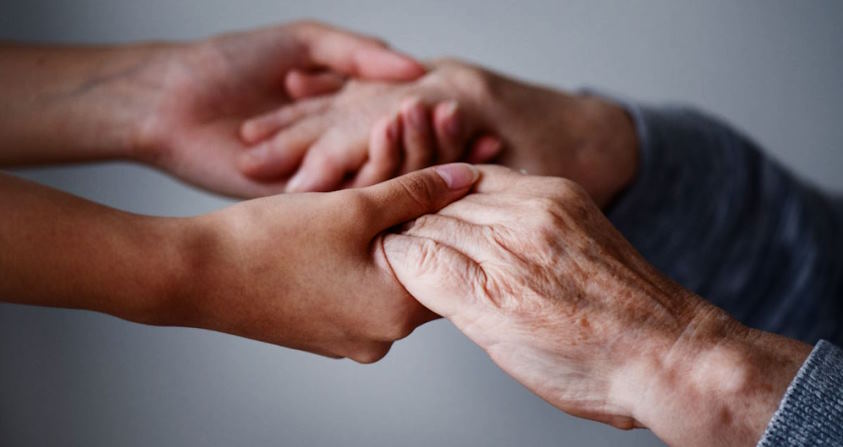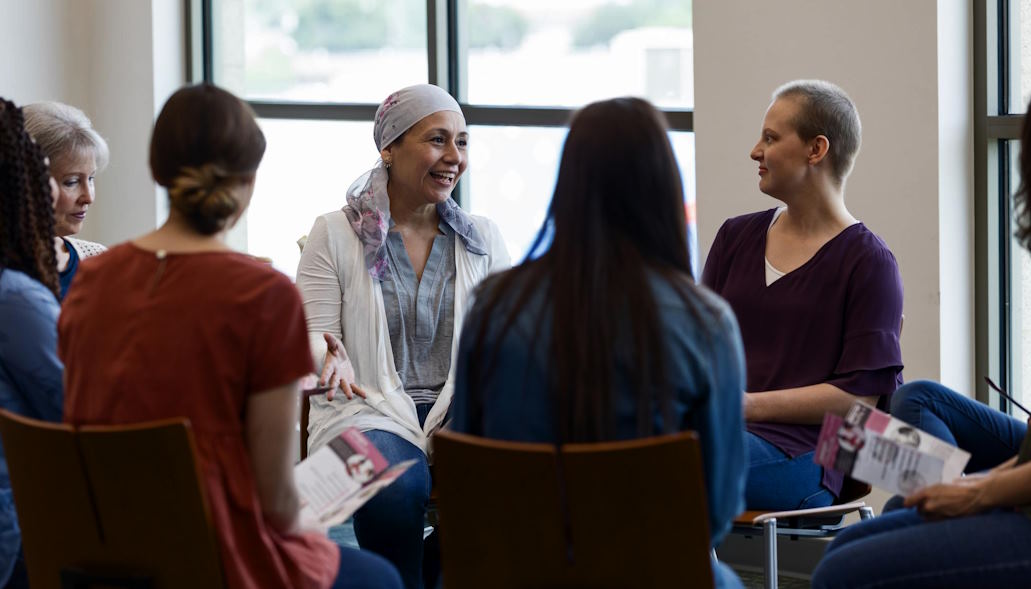Supporting Caregivers: Coping with the Emotional Challenges of Cancer

Cancer not only affects the individuals who are diagnosed but also casts a profound impact on their loved ones, particularly the caregivers who shoulder the responsibility of providing support and care. The emotional challenges faced by caregivers in the context of cancer cannot be underestimated, as they navigate through a range of emotions, from stress and anxiety to sadness and grief. Recognizing the significance of supporting these unsung heroes, this article aims to shed light on coping strategies for caregivers dealing with the emotional burdens of cancer. By exploring the various aspects of caregiving and offering practical guidance, we hope to empower caregivers to prioritize their own well-being while providing the best care for their loved ones during this challenging journey.
Understanding the Emotional Impact of Cancer on Caregivers
Caring for a loved one with cancer is a journey filled with both compassion and emotional upheaval. The role of a caregiver can be emotionally taxing, often leading to increased levels of stress, anxiety, and even depression. The immense responsibility and the constant presence of uncertainty can take a toll on their well-being, making it crucial to recognize and address the emotional challenges they face.
Witnessing the suffering of a loved one is undoubtedly one of the most significant factors contributing to the emotional toll on caregivers. The pain and distress experienced by the person they care for can be deeply distressing, triggering a range of emotions such as sadness, helplessness, and grief. The weight of these emotions can become overwhelming, making it essential for caregivers to seek support and find healthy outlets for their own emotional well-being.
Uncertainty adds another layer of emotional strain for caregivers. The ever-changing nature of cancer and its treatment plans can leave caregivers feeling anxious and on edge. The constant worry about the future, the effectiveness of treatments, and the potential outcomes can create a chronic state of stress. Caregivers often find themselves trying to balance hope and fear, which can be mentally and emotionally exhausting.
Role strain is another critical factor that contributes to emotional challenges among caregivers. Balancing the responsibilities of caregiving with other roles in their lives, such as being a partner, parent, or employee, can create a sense of overwhelming pressure. The juggling act of managing multiple roles while providing care can leave caregivers feeling stretched thin and emotionally drained.
Research findings and statistics further highlight the prevalence and significance of emotional challenges faced by caregivers. Studies have shown that caregivers experience higher levels of stress, anxiety, and depression compared to the general population. They are at an increased risk of developing mental health issues due to the demands and emotional intensity of their caregiving role. Acknowledging these statistics serves as a reminder that caregivers need support, understanding, and resources to effectively cope with the emotional impact of cancer.

Building a Support System
Caregiving can be an overwhelming journey, but it doesn’t have to be a lonely one. Creating a strong support network is vital for caregivers, providing them with the emotional support, understanding, and encouragement they need. By reaching out and building connections with others, caregivers can find solace in knowing they are not alone in their experiences.
Family and friends are often the first line of support for caregivers. Sharing the challenges and emotions with loved ones can provide a sense of relief and understanding. It’s important for caregivers to communicate their needs openly and honestly to their family and friends, allowing them to offer assistance and be there for support.
Support groups specifically designed for caregivers can be invaluable. These groups provide a safe space to share experiences, exchange advice, and receive validation from individuals who are going through similar journeys. Attending local support group meetings or joining online communities can provide a sense of belonging and allow caregivers to connect with others who truly understand their challenges.
In addition to traditional support systems, online communities have become a valuable resource for caregivers. Online platforms offer a convenient and accessible way to connect with fellow caregivers, exchange information, and seek emotional support. Engaging in discussions, participating in forums, and joining social media groups can provide a virtual support network that is available 24/7.
To effectively seek and utilize support from others, caregivers can start by identifying their specific needs and communicating them clearly to their support network. It’s important to be proactive in reaching out and asking for help when needed. Caregivers should not hesitate to delegate tasks or accept assistance, understanding that it benefits both themselves and their loved ones.

Self-Care for Caregivers
When caring for a loved one facing cancer, it’s easy for caregivers to prioritize the needs of their loved one over their own. However, practicing self-care is not selfish—it’s essential. Taking care of your own well-being has a positive impact on your emotional well-being and ability to provide quality care. By implementing practical self-care strategies tailored for caregivers, you can ensure that you maintain your own health while supporting your loved one through their journey.
Physical self-care is an integral part of maintaining overall well-being. Make sure to prioritize adequate sleep, nutrition, and exercise. Engage in activities that promote physical health, such as going for walks, practicing yoga, or participating in a favorite hobby. Remember to schedule regular check-ups and take any necessary medications. Taking care of your physical health enables you to have the energy and stamina needed to fulfill your caregiving role.
Emotional self-care is equally important. Allow yourself to acknowledge and process your emotions. Find healthy outlets to express your feelings, such as journaling, engaging in creative activities, or confiding in a trusted friend or therapist. Set aside time for activities that bring you joy and relaxation, whether it’s reading a book, listening to music, or spending time in nature. Taking these moments for yourself helps recharge your emotional batteries and provides a sense of balance.
Mental self-care involves nurturing your mind and reducing stress. Practice mindfulness techniques, such as deep breathing exercises or meditation, to promote mental clarity and reduce anxiety. Engage in activities that stimulate your intellect and creativity, such as solving puzzles, learning a new skill, or engaging in hobbies that challenge your mind. It’s also important to set realistic expectations and avoid overburdening yourself with unnecessary responsibilities.
Lastly, setting boundaries and taking breaks are crucial to avoid caregiver burnout. Learn to recognize when you need to step away and take time for yourself. Allow yourself guilt-free breaks and delegate tasks to others when possible. Setting boundaries helps maintain a healthy balance between caregiving and personal well-being.









































